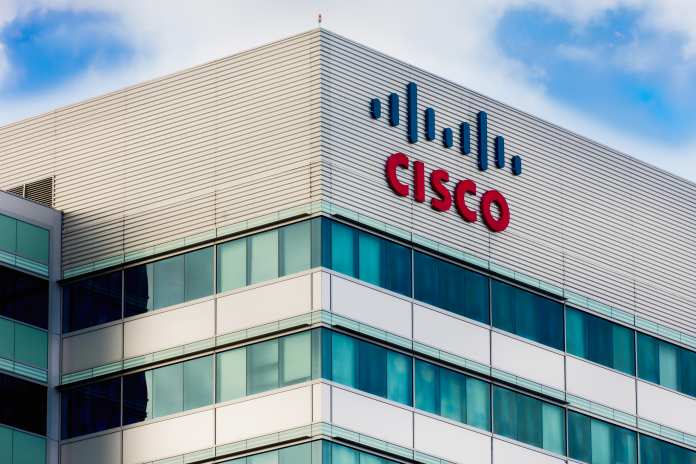When a high-profile politician trades stocks, investors take notice. Florida Senator Marco Rubio recently sold his stake in Cisco stock (NASDAQ:CSCO) on January 7, 2025. His disclosed position was valued between $1,000 and $15,000—modest compared to other congressional trades, but still noteworthy given Cisco’s dominance in the tech industry.
Cisco is a $248 billion powerhouse that keeps global computer networks running. The company has gained investor trust with a reliable dividend and strategic expansion into artificial intelligence (AI) and cybersecurity. With Cisco stock showing steady growth, Rubio’s sale raises an important question: Should investors follow his lead, or is Cisco still a solid long-term hold?
Cisco Stock: Financial Performance and Dividend Strength
Cisco stock has delivered solid returns, gaining 6.9% over the past month, 6.1% year-to-date, and an impressive 25% over the past year. Despite short-term market fluctuations, Cisco’s fundamentals remain strong.
The company currently offers a dividend yield of 2.57%, paying shareholders $0.40 per share quarterly. This stability makes Cisco stock attractive for long-term income investors.
Cisco’s most recent earnings report showed:
Revenue: $13.8 billion (down 6% year-over-year)
Net income: $0.91 per share (above expectations)
Customer orders: Up 20% year-over-year
Despite a revenue decline, Cisco’s expanding order book and profitability indicate a strong business foundation. At 20 times forward earnings, Cisco stock remains attractively priced compared to other tech giants trading at 25 times earnings.
Cisco’s AI and Cybersecurity Expansion
Cisco stock is benefiting from the company’s aggressive push into AI and cybersecurity. Recent strategic moves include:
AI Defense Launch (Jan. 15, 2025): A new AI-driven cybersecurity platform to protect businesses from cyber threats.
SnapAttack Acquisition (Jan. 31, 2025): Strengthening Cisco’s cybersecurity capabilities by integrating threat detection into its Splunk division.
Partnership with Hitachi Vantara (Feb. 6, 2025): Enhancing cloud infrastructure with AI-powered efficiency solutions.
These initiatives reinforce Cisco’s long-term growth prospects in high-demand sectors like AI, cybersecurity, and cloud computing. While Rubio’s sale suggests he may be reallocating funds, it doesn’t necessarily signal trouble for Cisco stock.
Analyst Ratings: Bullish Outlook for Cisco Stock
Wall Street analysts remain confident in Cisco stock despite short-term market uncertainty. As of early February 2025, analysts project:
Q2 2025 revenue: $13.75 billion to $13.95 billion
Full-year 2025 revenue: $55.3 billion to $56.3 billion
Earnings per share: $3.60 to $3.66
Out of 21 analysts, the consensus rating is Moderate Buy:
9 analysts rate it Strong Buy
2 analysts rate it Moderate Buy
10 analysts rate it Hold
With a mean price target of $64.68, Cisco stock still has 3% upside potential from its current levels.
Should You Sell Cisco Stock?
While political trades can provide insight, investors should base decisions on fundamentals, not short-term trades. Cisco stock remains a strong dividend payer with a promising AI and cybersecurity future. With continued revenue growth, solid earnings, and Wall Street support, Cisco is more of a buy-and-hold stock rather than a sell.
Long-Term Outlook: Why Cisco Stock Remains a Strong Investment
Beyond its current growth drivers, Cisco stock continues to show resilience in a rapidly evolving tech landscape. The company’s pivot toward AI and cybersecurity isn’t just a short-term play—it’s a strategic move that positions Cisco for sustained revenue growth.
Cisco’s Splunk acquisition is a key piece of this strategy. By integrating Splunk’s AI-driven security and data analytics solutions, Cisco is enhancing its enterprise offerings. This positions the company as a leader in cybersecurity, an industry expected to grow at a 13.8% compound annual growth rate (CAGR) through 2030.
Additionally, Cisco’s cloud networking solutions continue to expand, providing businesses with scalable, secure infrastructure. Its strategic partnerships with companies like Hitachi Vantara show Cisco’s commitment to improving cloud efficiency and security.
Investors should also consider Cisco’s strong balance sheet. The company maintains healthy cash reserves and a low debt-to-equity ratio, reducing financial risk during economic downturns. With steady dividend growth and a focus on high-margin enterprise solutions, Cisco remains a reliable long-term investment.
While short-term traders may react to Rubio’s stock sale, long-term investors should focus on Cisco’s strong fundamentals, dividend stability, and future growth in AI and cybersecurity.
Featured Image: Megapixl








